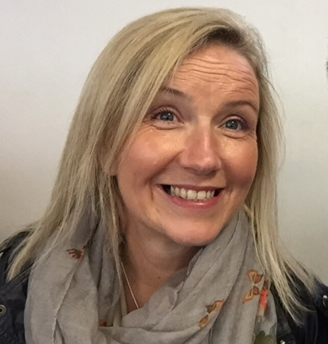Philip Blaker - Testing the Future
The Curriculum for Wales is an opportunity to think differently about education. As Qualifications Wales launches its first public consultation on qualifications to support the curriculum, Chief Executive Philip Blaker says tomorrow’s 16-year-olds need the right offer.
As Wales’ ambitious new curriculum moves closer to becoming reality, it’s inevitable that questions will arise about how the curriculum will be enacted.
As the independent regulator of qualifications, we know the change in approach intended by the curriculum offers the opportunity to re-think how we expect 16-year-olds to demonstrate their attainment. Without doubt, we have skin in the game.
How do we measure success in learning? What do we want our young people to know by the time they leave school? What should they be able to do? How can we give Wales’ learners their best chance of success? Qualifications can’t answer all these questions. Indeed, we shouldn’t ask them to – qualifications can only be part of someone’s educational experience and shouldn’t be seen as a substitute for a rounded curriculum and broad educational experience.
However, we have launched our first consultation to start seeking answers to some of these questions, proposing key principles to help us shape the future. We are also asking about purpose, choice and how skills fit this new education agenda. One of the questions we are testing through this consultation is this: should we continue to call new qualifications designed for the new curriculum GCSEs?
Wales’ Future Generations Commissioner has questioned the role of qualifications at 16 recently, with the publication of the report Education Fit for the Future in Wales in collaboration with Professor Calvin Jones. The headlines focused on a call to scrap GCSEs and a move away from an obsession with exams. It is a clear challenge to the status quo and a healthy debate to have.
GCSEs are, without doubt, the most instantly recognisable form of qualification for 16-year-olds in Wales today. We know from our work measuring public confidence that GCSEs are a solid measure, trusted and understood. Because of that, they travel well despite distinctive differences across jurisdictions that have been introduced over recent years.
Putting brand aside for a moment, another question people ask is why do we need qualifications at 16 at all? It’s a fair challenge. There are thought-leaders who question whether 16 is too young to experience exam pressure, and in any case do people really need qualifications at that age?
I believe that qualifications are still needed at 16. Education in Wales is compulsory until that age, unlike England where education is compulsory to the age of 18. Although most 16-year-olds choose to continue their education, not all do. And even among those that do, not all will achieve further. So, it is essential that everyone going through education has a way of demonstrating what they know and what they can do.
Some thought leaders also predict that people will change careers many times in the future economy, indeed people have done that for many years already. In my mind that makes a broad record of attainment even more important at 16 since the qualifications gained after this age are going to be more specific and may not enable transitions between careers later in life.
Are today’s GCSEs fit for tomorrow? Some would argue that they are not suitable at all. But there is a risk of missing the point here. Qualifications inevitably have a limited shelf life, so they need reform over time to maintain relevance. But that doesn’t mean to say that you get rid of the name – they can evolve but still have the same title.
As we look at how best to evolve today’s qualifications, we will be looking beyond the technicalities. In a world where what people can do is just as important as what they know, we will be applying a skills lens to qualifications where we can. We are already doing this for reformed GCSEs in important ‘real world’ areas such as digital technology and the built environment, and we can see a useful blueprint that could work for other qualifications.
If we want our young people to have the best chance in life as they cross into the adult world, we must do everything we can to make the offer at 16 the very best. Tailor made for Wales, inspiring ambition and respected beyond our national border.
The Curriculum for Wales is an opportunity too good to miss for qualifications. We need the people of Wales to use our consultation to help us shape the future.
Qualifications Wales’ online consultation Qualified for the future is open until 5pm on February 7th.
Philip Blaker
Philip Blaker is the Chief Executive for Qualifications Wales, the body that regulates qualifications other than degrees, in Wales.




 I have been a Headteacher in Wales for nearly 20 years and during that time there have been 5 main Ministers of Education, Jane Davidson, Jane Hutt, Leighton Andrews, Huw Lewis and now Kirsty Williams. Although much has changed in Welsh education during that time with the introduction of the Foundation Phase, the Welsh Baccalaureate, the abolishment of SATs and the introduction of National Testing to name but a few of the initiatives introduced since devolution, not much has really happened to develop and support leadership in Wales…. until now.
I have been a Headteacher in Wales for nearly 20 years and during that time there have been 5 main Ministers of Education, Jane Davidson, Jane Hutt, Leighton Andrews, Huw Lewis and now Kirsty Williams. Although much has changed in Welsh education during that time with the introduction of the Foundation Phase, the Welsh Baccalaureate, the abolishment of SATs and the introduction of National Testing to name but a few of the initiatives introduced since devolution, not much has really happened to develop and support leadership in Wales…. until now.
 That is how the Minister for Health and Social Services has described his vision for the new regulatory and inspection arrangements for social services and social care in Wales through the legislation which will come into force in 2016. He wants a regulation system geared to support success, not simply to identify failure. The approach will be to regulate for improvement and for success. This is music to my ears!
That is how the Minister for Health and Social Services has described his vision for the new regulatory and inspection arrangements for social services and social care in Wales through the legislation which will come into force in 2016. He wants a regulation system geared to support success, not simply to identify failure. The approach will be to regulate for improvement and for success. This is music to my ears! Have you noticed the subtle change in language? Earlier this year Welsh Government documents were referring to 'Professional Development'; now the talk is all about 'Professional Learning'. The New Deal refers to the Professional Learning Model ( see Learning Wales, 2015). It wasn't a sudden change - both terms have been used in Welsh Government documents over the past year and much has been borrowed from the Scottish model of Career Long Professional Learning (CLPL) (Education Scotland, 2015), but now the term Professional Learning is getting more prominent.
Have you noticed the subtle change in language? Earlier this year Welsh Government documents were referring to 'Professional Development'; now the talk is all about 'Professional Learning'. The New Deal refers to the Professional Learning Model ( see Learning Wales, 2015). It wasn't a sudden change - both terms have been used in Welsh Government documents over the past year and much has been borrowed from the Scottish model of Career Long Professional Learning (CLPL) (Education Scotland, 2015), but now the term Professional Learning is getting more prominent.